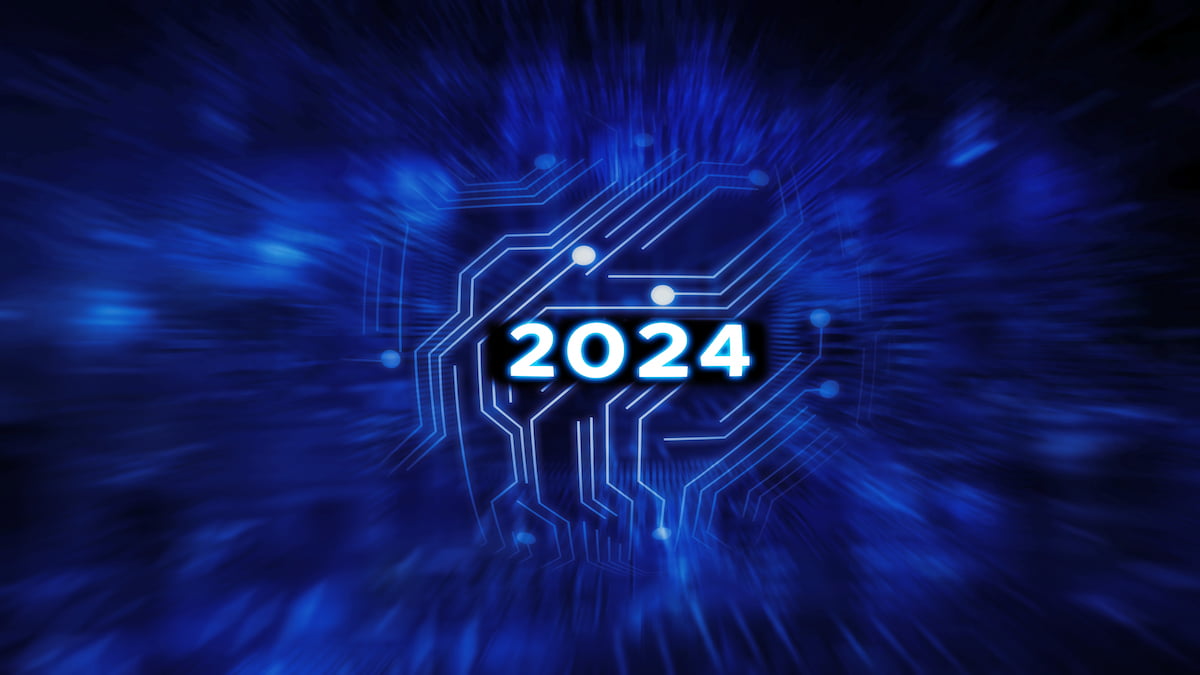Artificial Intelligence (AI) has become an integral part of our daily lives, from virtual assistants on our smartphones to self-driving cars. With its growing impact, it’s no surprise that the development and adoption of AI are only expected to accelerate in the coming years. It is crucial to understand the upcoming trends in AI to prepare for the transformative changes it will bring. Let’s take a look at some of the major AI trends set to emerge in 2024.
The Rise of the Machines: Advancements in AI Technology
The Next Generation of Generative AI
One area where we can expect significant advancements is in generative AI. This technology has come a long way from its initial applications in entertainment and marketing, such as creating deepfake videos and virtual influencers. In the next few years, we can expect to see more developments in multi-modal generative AI, which combines different forms of media such as text, voice, music, and visuals. This will lead to a more seamless and immersive experience for users.
The potential applications of this technology are vast and varied. For example, it could be used in creative industries such as film and music production to generate new and unique content. In scientific research, it could assist with data analysis and visualization, leading to new insights and discoveries. And in personalized experiences, it could enhance virtual reality simulations or even create personalized products or services based on individual preferences.

The Democratization of AI
Another trend that is set to accelerate in the next few years is the democratization of AI. This movement aims to make AI accessible to a wider range of individuals and organizations, not just tech giants. With the development of low-code and open-source AI tools, the process of developing and implementing AI solutions has become more straightforward and more affordable.
This trend has significant implications for various sectors, such as education, healthcare, and small businesses. For example, low-code AI tools can enable educators to create personalized learning experiences for students, while open-source AI solutions can help healthcare professionals analyze medical data more efficiently. And for small businesses, the democratization of AI can level the playing field by providing access to advanced technology that was previously only available to larger corporations.
Quantum AI: Redefining Computational Power
Quantum computing is another area of technology that has been gaining a lot of attention in recent years. And for a good reason – it has the potential to significantly accelerate AI algorithms and training, leading to faster and more accurate results. In fact, quantum AI could be the key to unlocking some of the most complex problems that traditional computers struggle with. This includes areas such as drug discovery, materials science, and financial modeling.
However, there are still challenges and limitations in current quantum computers. The technology is still in its early stages, and practical use may be a few more years away. But with ongoing advancements and collaborations between researchers and companies, we can expect to see significant breakthroughs in the near future.

The Robotics Revolution
Advancements in AI have also led to significant improvements in robotics technology. As machines become more intelligent, they are also becoming more capable of performing complex tasks. Collaborative robots (cobots) are already working alongside humans in various industries, from manufacturing to healthcare. With advancements in AI, we can expect to see the integration of autonomous robots into these fields as well. These robots will be able to perform tasks independently, without human intervention.
The potential for AI-powered autonomous robots is vast. In healthcare, they could assist with surgeries and patient care, while in logistics, they could improve efficiency and productivity in warehouses. And in exploration, we could see them used for tasks such as space exploration or deep-sea mining.
Cybersecurity in the Age of AI
As with any new technology, there are always concerns about its potential misuse. With the increasing sophistication of AI, cybersecurity has become a significant concern. As AI becomes more prevalent in our daily lives and critical infrastructure, we must also be aware of potential cyber threats.
However, the development of AI-powered cybersecurity systems is helping to mitigate these risks. These systems can proactively identify and respond to potential attacks, making them an essential tool in protecting our data and critical infrastructure. But it’s not just about technology; human-AI collaboration is crucial in this space. By working together, we can ensure that AI is used ethically and responsibly, while also addressing any potential vulnerabilities.

Shaping the Future: Navigating the Landscape of AI
Ethical and Legal Considerations
The landscape of Artificial Intelligence (AI) is evolving rapidly, bringing to the fore a crucial debate on ethical AI development and deployment. Ethical considerations in AI encompass a wide array of concerns, including bias, privacy, and the potential for misuse. As AI systems become more complex and integral to daily life, ensuring they are developed and used responsibly is paramount.
A significant development in this arena is the emergence of legal frameworks designed to govern AI. The European Union’s AI Act is a pioneering step in this direction, proposing regulations to manage AI risks and ensure compliance with fundamental rights. Similarly, the United States has introduced the AI Bill of Rights, aimed at protecting citizens’ rights in the age of AI. These legislative initiatives highlight a global recognition of the need for legal oversight in AI development.
Central to the ethical deployment of AI is the concept of transparency. Transparent AI models and accountable algorithms are essential to build trust with the public. This means AI systems should be understandable, and their decision-making processes should be clear, allowing for scrutiny and accountability.
Augmented Workforces: Humans and AI Collaboration
The concept of AI as a “shadow employee” is gaining traction, where AI systems assist and enhance human productivity. This evolution in human-AI collaboration sees AI not as a replacement but as a complement to human skills and decision-making. In such a collaborative environment, AI handles routine and data-intensive tasks, allowing humans to focus on more creative and strategic aspects of work.
This synergy is reshaping job markets, necessitating a shift in the skills required for success in an AI-powered workplace. Workers need to adapt to working alongside AI, leveraging these tools to enhance their productivity and decision-making capabilities.

The Human-AI Interface: Beyond Screens and Keyboards
The development of natural language processing (NLP) and multimodal interaction technologies is revolutionizing how humans interact with AI. These advancements enable more seamless and intuitive communication with AI systems, moving beyond traditional interfaces like screens and keyboards.
Augmented Reality (AR) and Virtual Reality (VR) are integrating with AI to provide immersive experiences and enhanced collaboration. These technologies enable users to interact with AI in more natural and human-centric ways, opening new possibilities for AI applications and entertainment.
However, as human-AI interactions become more intimate, ethical implications emerge. The potential for social and emotional impacts must be considered, ensuring that these advancements do not inadvertently erode human values or connections.
Conclusion
In conclusion, the upcoming trends in AI are set to have a transformative impact on various aspects of our lives. From advancements in generative AI and democratization to the potential of quantum computing and robotics, we can expect to see significant developments in the coming years.
However, it’s crucial that we continue to engage in ongoing dialogue and collaboration to ensure ethical and responsible development of AI. With this approach, we can harness the potential of AI as a tool for positive change and human progress, while also addressing the challenges that come with it. So let’s keep an eye on these trends and get ready for the exciting future of intelligence in 2024.
This post contains affiliate links.
Author

This article was written with the assistance of AI. Edited and fact-checked by Ronan Mullaney.
View all posts







